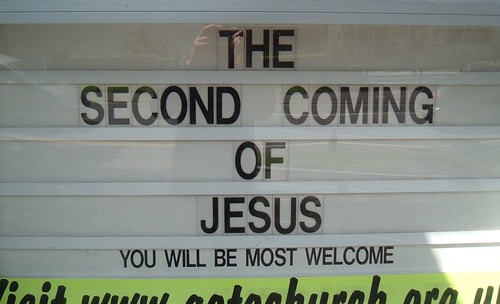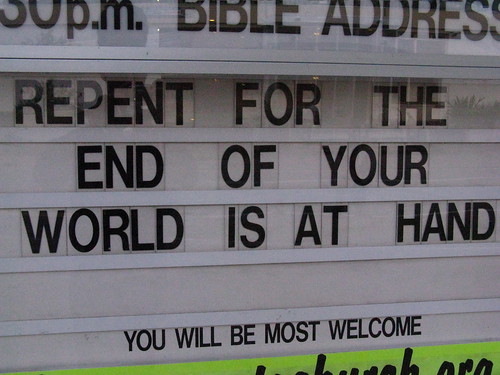Scorched Earth

Watched Apocalypse Now again last night – must be the tenth time or so. It reminded me just how perfect it is as a movie: how brilliantly constructed it is, how every element feels right, but feels almost to have organically grown (I can't actually imagine anyone committing the physical act of writing the 'Playboy Bunnies' scene.) I don't just mean the narrative elements – there are barely any at all, making it easier to get it right – but the 'feel' of the material, the very substance: the lighting, colour, texture, symbolism, dialogue, performances (it helps that the film has the kind of cast list that would elicit gasps from me). And that fact alone makes it even better: as the first serious Vietnam War film, released only 4 years after American troops left, it got the entire genre absolutely right; really, every Vietnam War film produced since has been completely superfluous, because Apocalypse completely captures the nightmare atmosphere of the conflict, without making moral presumptions. It is, instead, a construction designed to show us exactly what war is – base brutality raised to the level of an art form.
Whilst the War provided a focus for the New Left and student activists, their protests were ultimately of little use, because they really had no understanding of what the war was. Only those who have never been to war can dismiss it as transparently pointless and brutal, and those involved as hired killers; Coppola shows us, in the form of Captain Willard, and the members of the Air Cav., men swept up in the distorted psychic currents of the war, "sucked up the river, into the jungle", fighting and murdering people because that's what happens, abusing the South Vietnamese (washing them into rivers with boat wakes, searching boats and shooting on sight) not because it helps in the fight against the Viet Cong, but precisely because the impulses of aggression and domination have become the norm, ontological facts, and suffuse every inch of the landscape, every frame of film with their searing but sullen colours. Kurtz represents the exact pinnacle of this process, exterminating Viet Cong with his army from his temple fortress, with a clinical disinterest, only wishing to talk about childhood memories of flowers and read poetry out loud, like a Victorian aesthete. His interest in warfare has passed beyond the point of practical interest to aesthetic disinterest, his extermination techniques near-enough perfected: "The strength of will required to do that… If only I had ten divisions of these men, our troubles would very quickly be over." (This corresponds with the often non-verbal nature of the film, in which Coppola shows us, as at the end, in which the temple is silently bombarded with bombs and napalm, the concrete nature, what Alan W. Watts, translating the Buddhist term tathata calls 'suchness'; such attitudes toward warfare are highly cultivated within Japan, in which Zen's treatment of everyday life and craft as the source and substance of awakening is a prime influence. It might be no coincidence that much of the last ten minutes of the film is filled with shots of Buddha statues, nor that Kurtz has his head shaved in the same way as a Buddhist monk.)
By contrast, we're presented with the absurdity of the 'Playboy Bunnies' scene, in which the girls deliberately play up to the obvious implications of girls wielding guns (dressed, BTW, as a cowgirl, an Indian, and a Yankee troop (I think), representatives of the bloodshed that lies at the root of modern American culture, perpetuating the nightmare these original acts of extermination started off) only to find their show comprehensively bum-rushed. All the details of that scene feel right, from the cheap beat band and mom-and-pop stage host, to the way the girls recoil from the black guys clamouring in the crowd. What is more, it reveals quite plainly the stupidity and brutality that lies at the root of right-wing attitudes to sexuality: the family must be supported, and modesty enforced in young women, but they simultaneously they must act submissively to the men who 'defend our way of life'; the right-wing simultaneously discourages promiscuity (with, of course, beatings and ostracism amongst other things), and encourages the use of rape as a weapon of war. The right-wing attitude to sex is dominated by a deviated obsession with domination and power, an obsession that is short-circuited by human lust, and so produces a distorted mirror image of both. In the vision of warfare-as-discipline that Kurtz represents, and that the Viet Cong unconsciously subscribe to ("Charlie didn't have a lot of time for R&R… All he had to look forward to was cold rice and a little rat meat.") the human element is not merely dominated, but transcended, pushed aside; the soldier goes past the world of human sympathy, turning his fellow beings into mere material for his destructive vocation; sexuality, the fount of mankind's reproduction, is stopped up. The G.I.s' attitude to sexuality is the one that's warped, not Charlie's.
Charlie, of course, is also the name of Mr Manson, who appears briefly, leering out from a newspaper photo: appropriately, as he displayed the same kind of contempt for the oversexed inhabitants of Laurel Canyon; Manson held the same kind of extinction-focused eschatology as Kurtz, and supposedly ended in the same rain of fire that destroys the temple at the very end of the film. The nightmare that was the end of the Sixties pivoted around the madness emanating out of Southeast Asia, and the presence of Manson's image seems to confirm that the world outside of Vietnam really was going insane. But unlike Ballard, for whom the apocalyptic air of the end of the Sixties was a product of the same "white heat of technology" that began it, the matrix of image and sensation in which Vietnam's napalm victims played their own small part, Coppola reaches back, through Bataille and Artaud's renegade Surrealism(s), and Conrad's Heart Of Darkness, to something black-hearted and non-human, animating events beneath the surface of "the illusion of affect" (K-Punk) – "The horror. The horror."




















